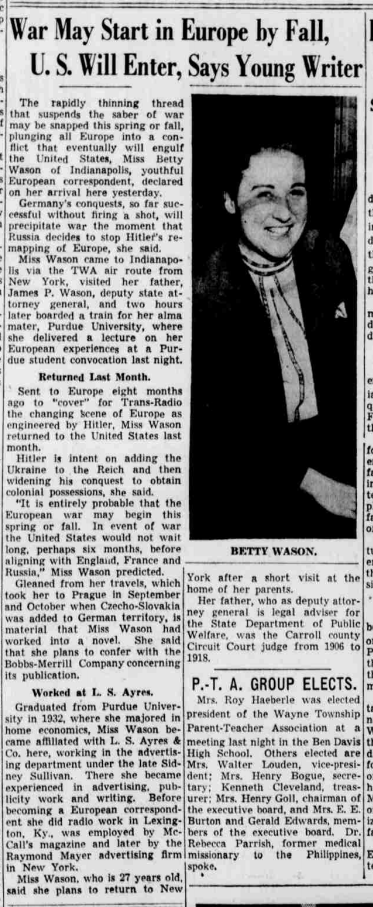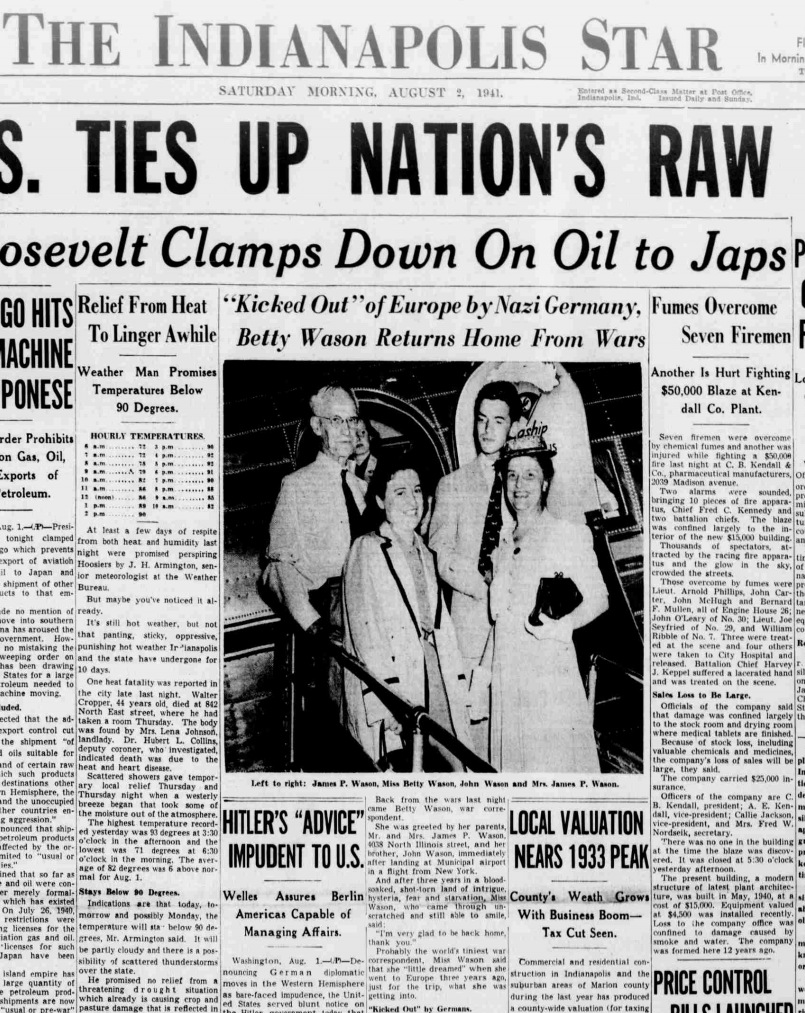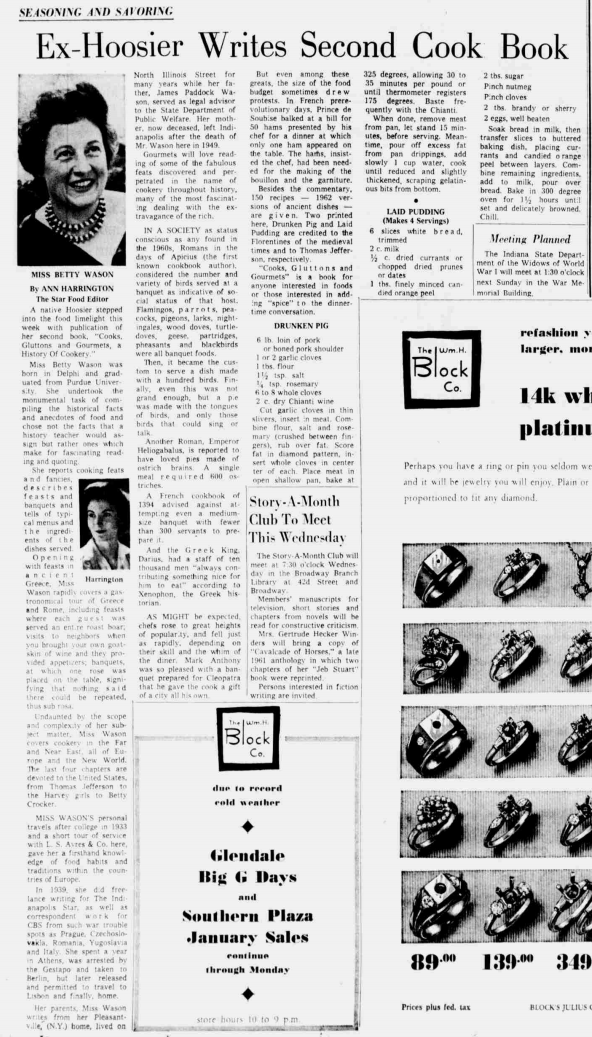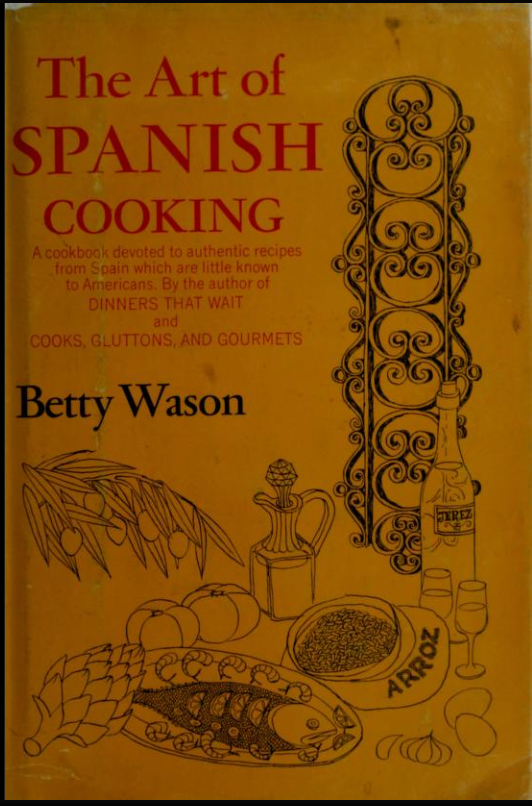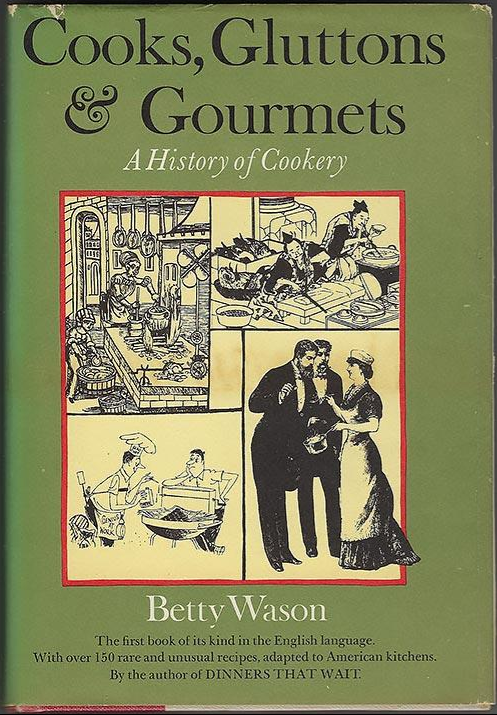“I was young and wanted to see the world. I had no money, so I decided I would become a journalist.” – Betty Wason
Elizabeth “Betty” Wason was an American author and broadcast journalist. Born on March 6, 1912 in Delphi, Indiana, she grew up studying classical violin and painting. After high school, she enrolled in Purdue University, hoping to pursue a career as a dress designer.
After graduating from Purdue on June 13, 1933, Wason went to work selling yard goods in the basement of the L.S. Ayres Department Store in Indianapolis. It wasn’t until her first broadcasting experience, working on a radio program for a cooking school in Lexington, Kentucky, that she would move toward a career in journalism. This would eventually lead her to New York.
Wason wrote, “I went around to New York editors announcing I was going to Europe and would like to be their correspondent.” She was once asked by Herbert Moore, president of Transradio Press, a wire service for radio newscasters, where she expected to go. Wason said boldly, ‘Wherever things are happening!”
During World War II, Wason traveled Europe as a war correspondent, but remained unrecognized as being one by her employer, CBS. During this time, she worked for, and with, Edward R. Murrow. Despite her significant contributions she, and a handful of other journalists working with Murrow, were barely recognized for their work in the famed group of war correspondents known as the “Murrow Boys.” After several months of traveling, she ended up in Greece for six months during the Axis invasion.
After her time in Europe, Wason returned to the United States where she had become one of the women pioneers in war-time correspondence. Wason was inundated with interview requests, lecture requests and press attention. “Everyone made a fuss over me, but CBS,” Wason wrote. “When I went to see [news director] Paul White, he dismissed me with, ‘You were never one of our regular news staff.’ Then what, I wondered, had I been doing for CBS all that time in Greece?”
After a disappointing career with CBS, Wason lived in Washington, D.C., New York and Portugal while working in public relations and as a freelance writer. She authored 24 books, with her most successful book being her 1942 story of the Axis invasion of Greece, “Miracle in Hellas: The Greeks Fight On.”
However, Wason’s other books were about one of her longtime favorite hobbies, cooking. Her personal and professional travels gave her firsthand knowledge of food history and traditions.
Her bibliography of cookbooks includes:
“Cooking Without Cans” (1943)
“Dinners That Wait” (1954)
“Cooks, Gluttons & Gourmets: A History of Cookery” (1962)
“The Art of Spanish Cooking” (1963)
“Bride in the Kitchen” (1964)
“The Art of Vegetarian Cookery” (1965)
“A Salute to Chinese” (1966)
“The Art of German Cooking” (1967)
“A Salute to Cheese” (1968)
“Cooking to Please Finicky Kids” (1968)
“The Language of Cookery” (1968)
“Betty Wason’s Greek Cookbook” (1969)
“The Everything Cookbook” (1970)
Wason settled near her daughter and grandchildren in Seattle in 1985, where she died on Feb. 3, 2001.
For more information on Wason, please visit the following resources: Betty Wason, Indiana Journalism Hall of Fame, Wikipedia and “Gender Discrimination in the 1940s: Why a Correspondent Turned from War to Cookbooks.” Additionally, the Indiana State Library currently has a display of Wason’s works on the second floor.
This post was written by Chris Marshall, digital collections coordinator for the Indiana Division at the Indiana State Library.

